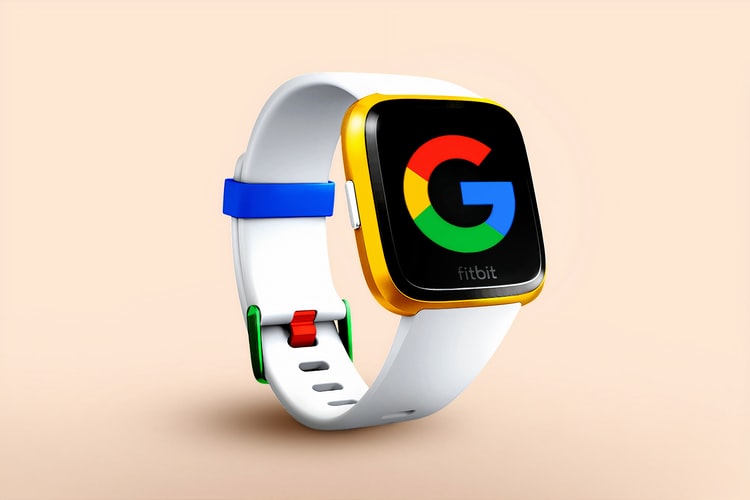Google’s Fitbit acquisition may be hitting another snag after the European Commission announced that it is initiating a full investigation into the merger.
The European Commission on Tuesday (August 4) opened an in-depth investigation into Google’s proposed acquisition of one of the world’s leading producer of wearable devices.
Alphabet Inc., Google’s parent company’s $2.1 billion Fitbit acquisition deal was announced late 2019 but has since stalled.
This after antitrust regulators in the EU as well as in the United States raised concerns on its possible use of data for ad targeting.
While Google has earlier pledged not to use health data from Fitbit for ads targeting, the European body thinks it still warrants closer scrutiny.
What concerns were raised by the EU’s antitrust body?
The European Commission, in a statement, said it is concerned that the proposed acquisition of Fitbit by Google “would further entrench Google’s market position in the online advertising markets.”
The antitrust body will be looking if the merger would increase the vast amount of data that Google could use for personalization of ads it serves and displays.
EU’s competition commissioner Margrethe Vestager said:
The use of wearable devices by European consumers is expected to grow significantly in the coming years. This will go hand in hand with the exponential growth of data generated through these devices. Our investigation aims to ensure that control by Google over data collected through wearable devices as a result of the transaction does not distort competition.
The probe will also focus on the impact of the transaction on the supply of online search and display advertising services as well as on the supply of ‘ad tech’ services.
The EU’s competition regulator is also concerned that the Google-Fitbit transaction would raise barriers for the entry or expansion of rival companies to the disadvantage of advertisers and publishers that would face higher prices and have less choice.
Also up for further examination are the effects of the merger on both company’s databases and capabilities in the digital healthcare sector.
The probe will also scrutinize whether Google would have the ability and incentive to degrade the interoperability of rivals’ wearables with Google’s Android operating system for smartphones once it owns Fitbit.
The European Commission was informed of Google’s proposed acquisition of Fitbit on June 15th and will have 90 working days or until December 9 to decide on the investigation.
How is Google responding to the probe?
Tech giant Google, however, stressed that upon announcement of the acquisition, they have been straightforward not to use Fitbit’s data for ad targeting.
Rick Osterloh, Google’s Vice-President for Devices and Services shared in a blog post on Tuesday (August 4) that the $2.1 billion acquisition “deal is about devices and not data.”
“We’ve been clear from the beginning that we will not use Fitbit health and wellness data for Google ads. We recently offered to make a legally binding commitment to the European Commission regarding our use of Fitbit data”
The Google executive said that they will give Fitbit users the choice to review, move, or delete their data while continuing support to wide connectivity and interoperability across Google’s products.
“We appreciate the opportunity to work with the European Commission on an approach that addresses consumers’ expectations of their wearable devices. We’re confident that by working closely with Fitbit’s team of experts, and bringing together our experience in AI, software, and hardware, we can build compelling devices for people around the world,” Osterloh said.
What is stalling Fitbit’s acquisition?
On November 1, 2019, Alphabet, Inc., Google’s parent company, announced having entered into a definitive agreement to acquire leading American wearables brand Fitbit.
Fitbit shareholders overwhelmingly approved of the deal on January 6, 2020.
The $2.1 billion deal is expected to close this year but it seems the full takeover will only happen by December when the EU regulator finally decides on its investigation.
Despite making progress with partners in wearable devices and fitness trackers with Wear OS and Google Fit, the Mountainview, California-based tech giant is looking to introduce Made by Google wearable fitness and health devices into the market with the acquisition of Fitbit.
“We don’t currently make or sell wearable devices like these today. We believe the combination of Google and Fitbit’s hardware efforts will increase competition in the sector, making the next generation of devices better and more affordable,” Osterloh said.
He also stressed there is vibrant competition in the smartwatches and fitness trackers industry, citing brands such as Apple, Samsung, Garmin, Fossil, Huawei, Xiaomi, and many others offering numerous products at a range of prices.
Fitbit currently ranks fifth among brands with a 5% market share on wearable devices still banking on its fitness tracker to drive sales while its smartwatches have also steadily grown in demand.
According to data analysts IDC, Apple remains to be the leading the wearable devices industry with a 36.5% market share followed by Xiaomi (10.8%), Samsung (8.8%), and Huawei (8.8%) market share in the last quarter of 2019.
Osterloh, meanwhile, stressed that they will work closely with EU regulators to answer their questions on the deal.
“We wanted to share more about how we believe this deal will increase choice, and create engaging products and helpful experiences for consumers,” he added.
Read More: HSBC Profits Plunges Amid COVID-19, US-China Tensions



